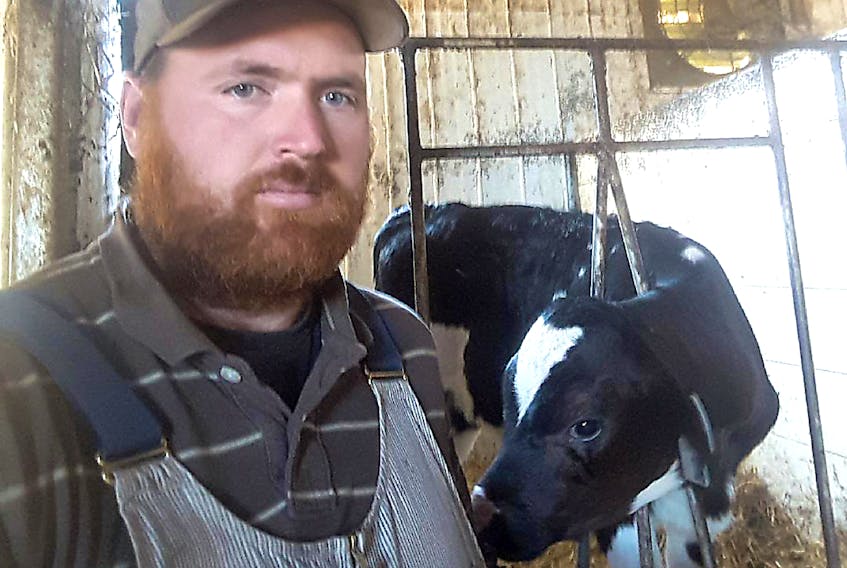GLENGARRY, P.E.I. - With the first light of dawn starting to filter through the barn windows, Daniel MacDonald pulled his cell phone out of his overalls pocket, checked his social media news feeds and felt his heart sink a little more with each swipe of his finger across the screen.
MacDonald, of Glendairy Holsteins Farm in Glengarry, was waking up to the news that Canada, Mexico and the U.S. had reached an agreement in principal to replace the North American Free Trade Agreement (NAFTA) with the United States-Mexico-Canada Agreement (USMCA). Word about the agreement started filtering down from the federal cabinet late Sunday night.
“I kept going through the morning, milking, but I also kept going back into the milk-house to check my phone and see if this was all true. I was kind of hoping it wasn’t true, but I guess as the morning went on it showed they did give up some,” said MacDonald.
What Canada “gave up” was the opening of an additional 3.59 per cent of the national dairy industry to American imports and a tweaking of the rules around Class 7 dairy products, like skim milk powder, in favour of the U.S. industry.
Related: Dairy still in distress, despite new USMCA, says P.E.I. Wayne Easter
Canada’s dairy supply management system has been one of the most contentious issues in the year-long negotiations that preceded the deal, with the U.S. demanding the system be scrapped or at the very least diminished. With an announcement looming, MacDonald and most other dairy farmers were on edge, bracing for bad news but hoping for the best. The federal government was adamant throughout negotiations that supply management was not on the negotiating table.
So, while USMCA doesn’t technically kill supply management, it will make it that much harder for farmers to make a living with no discernable benefit to the consumer, said Doug Campbell, district director of the National Farmers Union.
“To be quite frank, it was double-faced of our federal government to do so. All along they’ve been saying they support supply management, but you can’t support supply management and make concessions all at the same time.”
The Dairy Farmers of Canada and its local affiliate, the Dairy Farmers of P.E.I., also panned the deal, stating that their industry has ended up as a major bargaining chip in Canada's three most recent major free trade agreements.
The Comprehensive Economic and Trade Agreement (CETA) between Canada and the European Union, which took hold a year ago, also included provisions to allow more dairy products into Canada, as does the Trans-Pacific Partnership between Canada and a number of Pacific Rim countries.
Harold MacNevin, chairman of the Dairy Farmer of P.E.I., said farmers are very disappointed as they felt they had sacrificed more than their fair share already with those other two trade deals.
“We’ve had three trade agreement in the last five or six years … that’s coming to a total of 10 per cent of our domestic market being granted to other countries in the world,” said MacNevin.
“In every trade agreement, there are winners and losers, but with the last three trade agreements we’ve been the loser,” he added.
“It’s to the point where enough is enough.”
The P.E.I. government has been vocal in the past regarding its support for supply management.
On Monday, Premier Wade MacLauchlan said his government intends to work closely with local farmers and the federal government to try to soften the blow of USMCA.
“We have encouraged the federal government to act quickly to put in place adjustment programs and resources to ensure that any negative impacts on Island dairy producers or processors are mitigated,” MacLauchlan told the Journal Pioneer.
The USMCA still has to be ratified by all three member countries before it becomes a reality.









